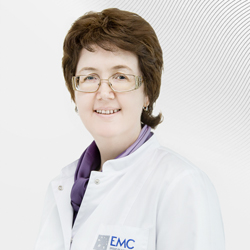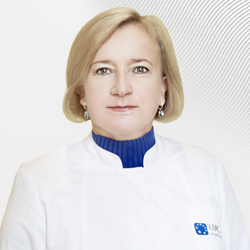
A pediatric cardiologist is a physician who diagnoses and treats illnesses of the heart and blood vessels in children, and also provides routine care for heart defects occurring with different conditions and illnesses.
Modern pediatric cardiology is significantly different from adult cardiology, as a child's heart is not simply a smaller copy of an adult heart, but a rapidly developing organ with changing functional and structural characteristics, from the first heartbeat in the womb to adolescence until the age of 18. Therefore it is important to pay attention to the conditions that might require not only diagnostics but also additional therapeutic and organizational activities together with parents, cardiothoracic surgeons, and other specialists.
Indications for conducting a consultation with a pediatric cardiologist are diseases or suspicions for:
- Arterial hypertension (primary and secondary);
- Pain syndrome in the area of the heart and/or chest;
- Secondary changes as a consequence of diseases in other organs and systems (hypothyroidism, hyperthyroidism, diabetes, hypoaldosteronism, kidney failure, lung diseases, cancer, etc.), and other types of cardiologic pathology;
- Genetic pathology (syndromes or syndromic types);
- Disturbances in heart rhythm, conduction, and excitability, nonspecific changes of the myocardium on ECG;
- Joint pathology and diffuse connective tissue diseases, with the exclusion of rheumatic disease;
- Inflammatory heart diseases;
- Cardiomyopathies;
- Congenital heart diseases and developmental anomalies;
- Heart failure.
A child needs consultation with a pediatric cardiologist if he (or someone in the family) has any of the following complaints:
- The infant tires easily while sucking from the breast or bottle, there is cyanosis (blueness) around the mouth or in area of the triangle created by the nose and mouth.
- The older child complains of pain in the area of the heart, tires quickly, the heartbeat sometimes becomes faster or slower, senses palpitations or an interruption in heartbeat, etc.;
- Blood pressure is higher or lower than the established norms for the child;
- There has been a loss of consciousness or a disturbance of consciousness (near syncope);
- Troubling pain in the joints or joint areas and/or swelling;
- There is edema;
- Diffuse cyanosis is noted (i.e. blueness of the skin and mucosae);
- Troubling, recurrent sore throats;
- Troubling headaches with signs of vascular reaction;
- Signs of systemic autonomic disorders appear.
When does a child need a planned examination with a pediatric cardiologist?
- Before enrolling the child in preschool or school;
- Before beginning sports groups or athletics;
- Before planned surgeries;
- If there is a family history of cardiovascular system pathology;
- If the child has chronic pathology of the nasopharynx (chronic adenoiditis, tonsillitis, etc.);
- If an individual daily schedule and meal recommendations etc., are needed in order to reduce the risk of disease development;
- When monitoring children with cardiologic pathology for timely adjustments to the treatment plan.
All stuff of EMC Children's clinic speaks English.
Prices
| Name | Price, € | Price, ₽ | Code |
CONSULTATIONS > Specialist's consultation
| Cardiologist consultation | 220 € | 20 440 ₽ | CS20 |
FUNCTIONAL DIAGNOSTIC
| Transthoracic echo-CG | 430 € | 39 951 ₽ | FUNC7 |
| BP monitor 24 h. | 380 € | 35 305 ₽ | FUNC11 |
| Holter monitor ECG 24 h. | 405 € | 37 628 ₽ | FUNC5 |
| ECG at effort / veloergometry, treadmill test | 391 € | 36 327 ₽ | FUNC4 |
TELECONSULTATIONS
| Cardiologist remote consultation | 220 € | 20 440 ₽ | RCS20 |


